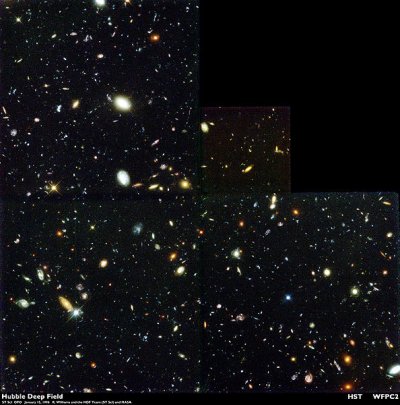Right now I'm reading
Deep Simplicity by John Gribbin. This has encouraged me to go back to the college physics books and relearn some things from decades ago. I particularly like the way Gribbin describes the difficulty of calculating using classical mechanics the movement and behavior of even fairly simple systems. Then when we take into account that a cubic centimeter of air contains about 10^19 or 1 billion times 10 billion molecules we see that we don't really have to get into quantum mechanics to appreciate the complexity of our world. As Gribbin says it is mostly a matter of describing the starting state of a system and it's feedback process. Requires a lot of estimates right off the bat.
Now a question for Don or others. I've seen a few reviews for books dealing with cosmological subjects and here are some titles:
1) Fabric of the Cosmos (2005) - Brian Greene
2) Hidden Reality (2011) - Brian Greene
3) In Search of the Multiverse - John Gribbin
4) The 4% Universe - Panek (see Don's discussion above)
5) others? -- add yours
So
which one to choose first or what order to read these or possibly other ones on cosmology? I still have my old copy of
A Brief History of Time by Stephen Hawking.

